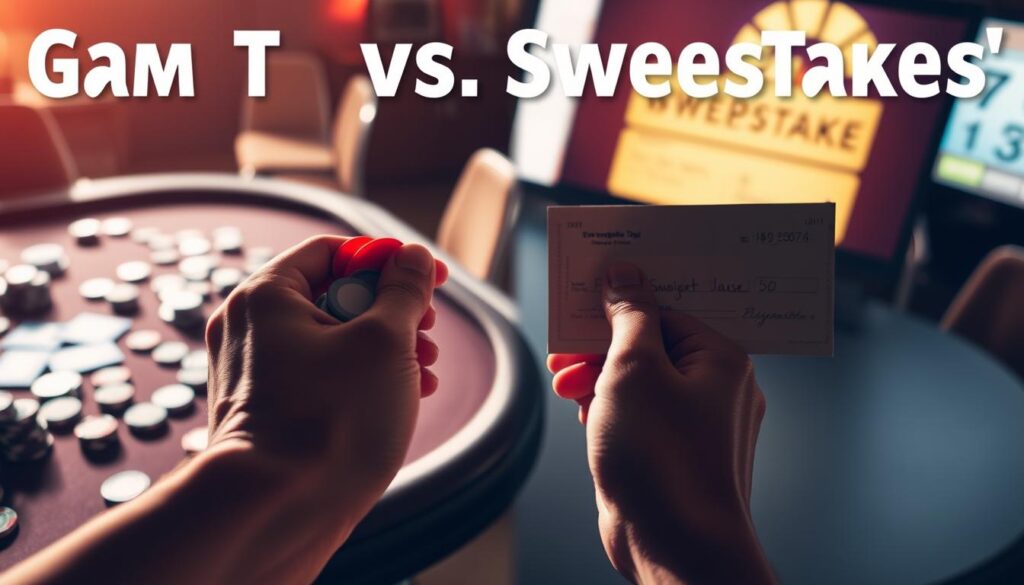Winning a sweepstakes can feel like a financial windfall, but it’s important to understand the tax implications. The IRS classifies prizes from contests and giveaways as taxable income, whether you receive cash, vacations, or physical items. This means you’re legally required to report these winnings on your annual tax return.
Your total taxable income—including prizes—determines your marginal tax bracket. Even small wins add up, and failing to report them could lead to penalties. Many people overlook non-cash prizes like electronics or gift cards, but their fair market value still counts toward your income tax calculations.
Proper documentation is critical. Keep records of contest rules, prize values, and correspondence with organizers. Tools like TurboTax can simplify reporting, but accuracy starts with organized tracking. Planning ahead helps avoid surprises when filing deadlines approach.
Key Takeaways
- All sweepstakes prizes must be reported as income to the IRS, regardless of their form.
- Cash and non-cash awards impact your taxable income and potential tax bracket.
- Failure to report winnings may result in penalties or interest charges.
- Documentation of prize details is essential for accurate tax filing.
- Tax software like TurboTax can streamline the reporting process.
- Plan for tax liabilities when receiving high-value prizes during the year.
Understanding Taxable Sweepstakes Winnings
Every prize from contests or giveaways carries tax responsibilities. The IRS treats these awards as ordinary income, whether you receive a check or Caribbean cruise. This applies to all forms of rewards, from instant-win game cards to social media giveaways.
What Constitutes Taxable Income
Taxable prizes include:
- Cash equivalents like prepaid debit cards
- Physical items (electronics, vehicles)
- Travel packages and event tickets
Even $5 gift cards count. The IRS states: "Prizes must be reported in the year you gain control of them." This means income gets recorded when you claim your reward, not when the contest ends.
Fair Market Value and Noncash Prizes
Sponsors determine values using retail prices. A $2,000 laptop listed at $1,800 during Black Friday? You report the market value at receipt time. Unique items require research - check eBay sold listings or appraisal reports.
Keep contest rules and valuation documents. One winner faced audits after reporting a "$500" coffee maker actually retailing for $399. Accurate records prevent disputes with tax authorities.
How to Track Your Sweepstakes Winnings for Taxes
Accurate recordkeeping ensures smooth tax reporting for contest rewards. Start by logging every prize’s receipt date, description, and sponsor details. Capture screenshots of entry confirmations and save email notifications as digital proof.
Documenting Your Win Records
Essential items to record include:
- Exact dates of prize notifications and physical receipt
- Detailed descriptions (brand, model, prize condition)
- Sponsor-provided valuation statements
- Delivery confirmation emails or tracking numbers
Digital tools simplify organization. Use cloud storage for winner letters and photos of physical items. The IRS states: "Taxpayers must retain records for three years from filing date."
Organizing Prize Details and Necessary Forms
Expect Form 1099-MISC for prizes exceeding $600. Some sponsors send forms by January 31st. If you don’t receive one, still report the income amount using your documentation.
Create separate folders for:
- Tax forms from sponsors
- Market value research (website printouts, auction records)
- Bank statements showing prize-related deposits
Backup systems prevent headaches during audits. Password-protected digital archives paired with physical binders offer dual protection. Update records monthly to avoid year-end scrambling.
Reporting Sweepstakes Winnings on Your Tax Return
Navigating tax obligations for contest prizes requires understanding IRS documentation rules. All prizes must appear on Form 1040 using Schedule 1, even if sponsors don’t provide tax forms. This applies to cash rewards, merchandise, and travel packages valued at any amount.
IRS Reporting Requirements
The IRS mandates full disclosure of all prizes as taxable income. You’ll report these amounts on line 8b of Schedule 1, which flows to your main Form 1040. Sponsors must issue Form 1099-MISC for prizes exceeding $600, but smaller wins still require manual reporting.
"Taxpayers must include the fair market value of all prizes in gross income regardless of whether they receive an information return."
Common Tax Forms You May Encounter
Two documents often accompany significant prizes:
- Form 1099-MISC: Reports non-employee compensation and prize values over $600
- Form W-2G: Specifically for gambling winnings, rarely used for standard sweepstakes
State requirements vary – seven states don’t tax prize income, while others mirror federal tax rules. Always cross-check sponsor valuations with retail prices. Discrepancies require amended filings using your documentation as proof.
Gambling Winnings versus Sweepstakes Prizes
Tax treatment varies significantly between casino earnings and contest rewards. While both types of windfalls count as taxable income, IRS rules diverge in how they handle deductions and documentation. These distinctions affect your tax strategy and reporting obligations.

Differences in Reporting and Deductibility
Gambling activities allow itemizers to deduct losses up to the amount of winnings. This requires detailed logs of bets, payouts, and casino locations. Sweepstakes participants, however, can’t offset prize values with entry fees or other costs.
| Factor | Gambling | Sweepstakes |
|---|---|---|
| Deductible Losses | Allowed if itemizing | Not permitted |
| Recordkeeping Requirements | Wins/losses by session | Prize valuations only |
| IRS Definition | Risk-based activity | Random selection |
| Withholding Threshold | $1,200+ slots win | $600+ prize value |
The IRS views gambling as skill-based risk-taking, making losses potentially deductible. Sweepstakes qualify as pure chance activities without allowable expense offsets. Casinos must withhold 24% on certain large payouts, while contest sponsors rarely deduct taxes upfront.
Documentation standards differ too. Gamblers need session records showing:
- Date and location
- Game type
- Win/loss amounts
Contest winners focus on prize valuations and contest rules. Always verify sponsor-provided tax forms against independent market value assessments.
Recordkeeping Best Practices for Winnings
Proper documentation serves as your first defense against tax disputes. A structured system helps prove prize valuations and dates while meeting IRS compliance standards. Consistency matters whether you win monthly small items or annual grand prizes.
Maintaining a Detailed Winnings Diary
Create a digital or physical log with these critical details:
- Exact date of prize notification and receipt
- Item descriptions (brand, model, condition)
- Sponsor's stated value versus market price research
The IRS requires records for seven years after filing. Store winner letters, delivery confirmations, and photos of physical items. Cloud storage with folder-by-year organization simplifies retrieval during tax season.
Market values can shift between winning and receipt dates. One contestant reduced their tax bill by 15% using eBay sold listings to prove a gaming console's depreciated price. Third-party appraisals strengthen claims for unique items like artwork.
"Documentation must clearly establish the amount and nature of prizes received during the tax year."
Implement automatic backups for digital records. Password-protected spreadsheets paired with photo archives create audit-ready proof. Update your system quarterly to avoid year-end scrambles.
Navigating New Tax Law Changes
The One Big Beautiful Bill reshapes how contest prizes get taxed in the United States. Signed into law this year, it permanently extends provisions from the Tax Cuts and Jobs Act while altering deduction rules. Sweepstakes winners should note three critical updates affecting their liabilities.
Impact of the One Big Beautiful Bill
This legislation raises the state and local tax (SALT) deduction cap to $20,000 for joint filers. Itemizers winning high-value prizes may offset more of their federal tax burden. However, reduced energy credits could minimize savings for winners claiming green incentives.
The bill also modifies tax bracket thresholds. A $50,000 vacation prize might push recipients into higher rates than previous years. Always recalculate marginal rates using current IRS tables after adding prize values to your income tax filings.
How Recent Changes Affect Tax Withholding
Sponsors now withhold 28% on prizes exceeding $5,000 under the big beautiful bill. This matches casino withholding rates, creating consistency across windfall types. Winners in no-tax states still face federal withholdings but may reclaim portions through credits.
Consult a tax professional if you’ve claimed major prizes this year. The One Big Beautiful Bill introduces complex interactions between deductions, credits, and prize valuations. Proactive planning helps avoid surprises at filing time.

